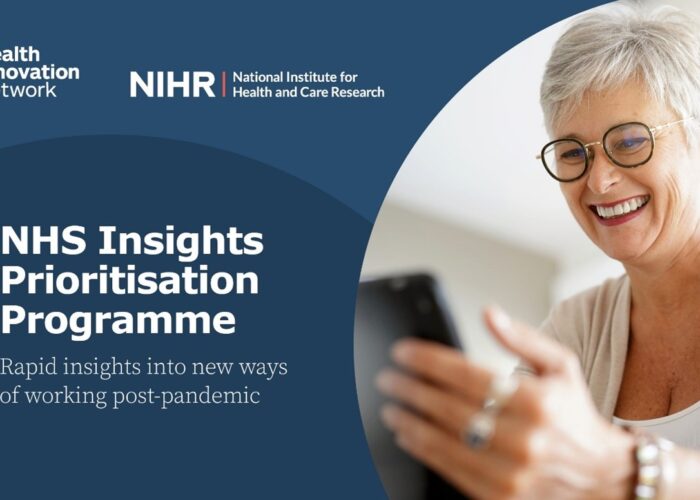 We look at how ‘R’ statistical programming can make data analysis more accessible across the NHS through new ICHP training sessions.
We look at how ‘R’ statistical programming can make data analysis more accessible across the NHS through new ICHP training sessions.
Data analysis plays a central role in a variety of NHS jobs today and the need for deeper and more detailed analysis is growing. However, many NHS workers are finding the depth of analysis they can do is restricted by the limitations of using Excel spreadsheets, and paying for more sophisticated analysis platforms like Tableau can be expensive.
The good news is there are alternative free options available to the NHS that are very effective, including one of the most popular and widely used statistical programming languages ‘R’. ‘R’ is a completely free open source language that is ideal for statistical analysis with large data sets, machine learning, data manipulation, and visualisation.
The power of ‘R’ is massive and, once learned, it can help make data analysis simpler and much less time intensive. Not only is data manipulation in ‘R’ easy and reproducible, it can also be used to create more accurate predictive modelling, much faster than would be possible in Excel, to support forecasting hospital activity, and it can analyse patients’ feedback by deconstructing free text paragraphs into words or phrases and identify patterns.
Users can also create automated reports for regular use and interactive dashboards simply, by using just one line of code. Thanks to it being open source, pre-written codes are shared online and can be used by anyone, so they don’t have to be reproduced time and time again.
The NHS ‘R’ community aims to spread its use across the NHS to make free, accessible data analysis available to all. Having used ‘R’ before joining the NHS, I know the benefits it can bring, so I was pleased to recently attend a ‘train the trainer’ two-day course, which gave me and 15 others the skills to provide introduction to ‘R’ courses for both NHS and public sector workers.
I am now running free courses on the basics of ‘R’ at ICHP, which are open to people from across the NHS and public sector including clinicians, managers and other staff, as well as analysts. Anyone who undertakes data analysis in their jobs, or who manages people who do, can benefit from the advantages of ‘R’.
The one-day course provides an overview of ‘R’ for people completely new to using it, with an introduction of the basics. Attendees learn what ‘R’ is, how to get started using it, simple coding, how to input and manipulate data, create graphics and how to deliver automated reporting. They leave the course with the basic knowledge to get going with ‘R’ when they get back to work.
Anna Madeleine Thorpe-Tracey, Data Manager at Great Ormond Street Hospital for Children NHSFT attended the first ‘R’ training day. She said: “The brilliant Ellie Johnston gave a really useful, clear and well-thought-out training today based on the new NHS-R Community training plans. It was a great day!”
I believe that ‘R’ will be a great benefit to the NHS, with its array of functionalities, its rich libraries of applied statistics tools and the ability to write your own models using simple syntaxes. This free and accessible programming will make data analysis faster, more detailed and more effective, and when used widely will provide cost and efficiency savings across the NHS.
By Dr Ellie Johnston, Health Data Analyst.



